Sultanhanı (Aksaray)
/ By Josh
Cost: 5TL
Great for: Seljuk Architecture, Silk Road, Caravanserai
Caravanserais, literally Caravan Palaces, were built as fortified inns along the vast network of trade routes used by the Seljuks. As the crown acted as a type of guarantor for the safe passage of goods in his lands it was important to maintain this system over a wide area. This system would continue after the demise of the Seljuks and well into the Ottoman period though the design would change.
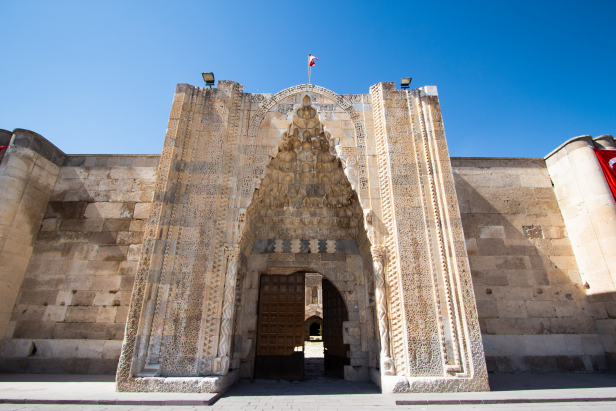
Why Visit?
Built in 1229 by Seljuk Sultan Alaeddin Keykubad I, Sultanhanı would go on to remain the largest ever built by the Seljuks of Anatolia and a prime example of their Caravanserai architecture. With thick walls and small high windows it’s clear that they were built for protection. On either side of the courtyard there is space for sleeping; one side enclosed for the colder seasons and the other open but covered. While the Seljuk Caravanserais tend to have much smaller ones than the Ottomans, a hamam, or Turkish bath, is always an important element.
Subscribe to The Art of Wayfaring
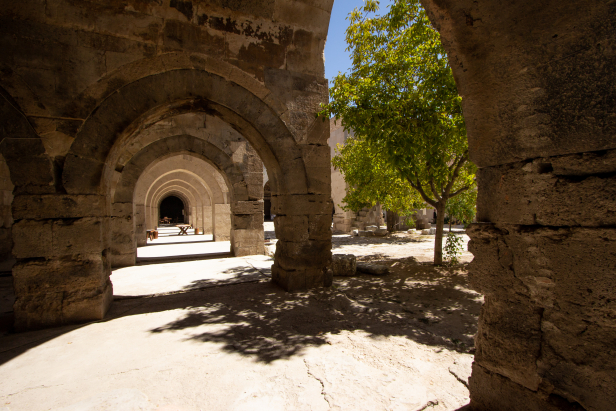
Opposite the entrance is the great hall, in this case a massive space with a small dome in the middle. While the dome is rounded on the inside it’s pointed on the outside which is quite common of Seljuk domes in general.
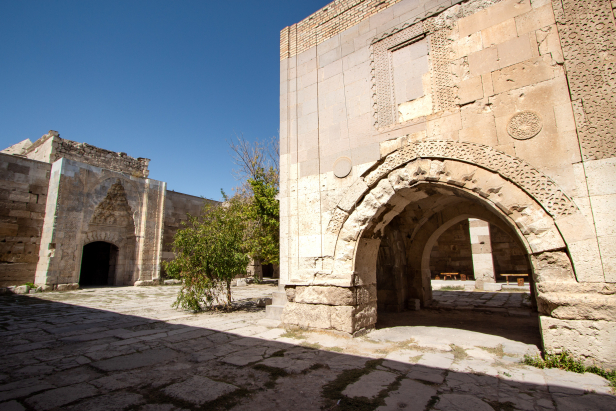
At the center of Sultanhanı is a strange kiosk built on a set of arches. This is the masjid, or small mosque. These are often beautifully carved and while the one at Sultanhanı has lost much of its original adornment it’s easy to spot sections of detailed geometrical patterns covering a good amount of the kiosk still.
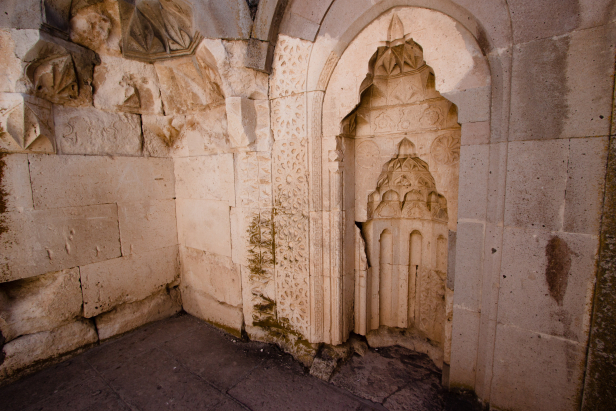
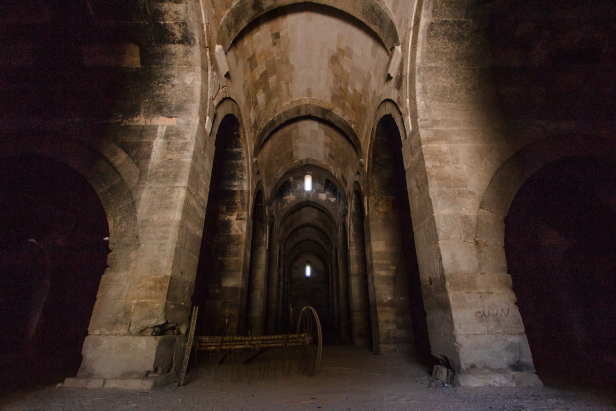
The doorkeeper at Sultanhanı will be more than willing to point all these and more out to you if you ask.
How To Get There
Bus
Sultanhanı is situated about halfway between Konya and Cappadocia (or the city of Nevşehir to be technical) along the D300 highway. As these are tourist destinations there are a fair amount of tour buses that take this route and as these are also larger centers there’s plenty of normal bus traffic as well.
Car
Like taking the bus , driving there by car will probably have you passing through Konya or Aksaray as well, then along the D300 highway to Sultanhanı.
For more about car rental and driving in Turkey make sure to read our full drivers guide.
Where To Stay
Despite the major setback that the tourism industry in Turkey has faced in the past few years there are still a surprising number of campgrounds, RV sites, hostels, and hotels still operating here. A few of the hotels are easy to find in the center of town and Kervan Camping, the RV and campsite with full utilities and laundry facilities, is only an 8 minute walk from the Sultanhanı Kervansaray.
Other Tips

This sleepy town happens to be a major center in the production, trade, and repair of Turkish rugs and tapestries and isn’t a major tourist hotspot so the prices will be better than in places like the Grand Bazaar. If you can, it’s a great place to see the shrinking cottage industry of handmade yarn being made or rugs being woven in the homes of the poor. Supporting the industry locally would be a major boon to these disappearing artisans.

Have any tips or info to add? Spot any mistakes? We’d love to hear about it.